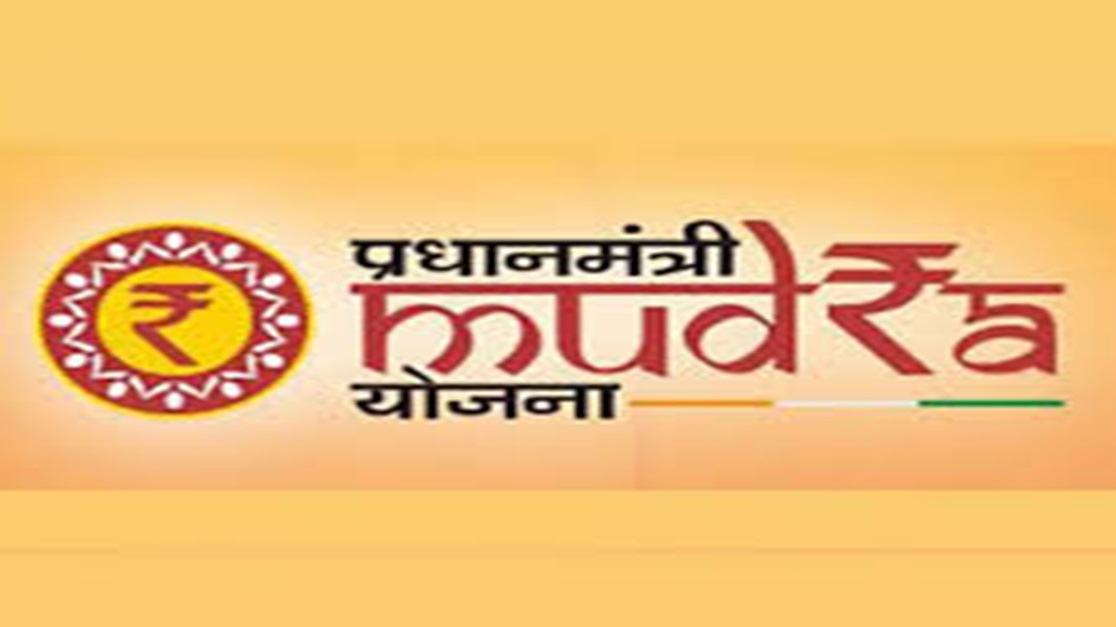What is PMMY? A Game-Changer for India’s Small Enterprises
Disclaimer: Ujjivan Small Finance Bank does not offer PMMY. This blog is written for generic information only. Please click 'Apply Now' to explore our MSME Loan products.
August 30, 2025

Launched on April 8, 2015, the Pradhan Mantri Mudra Yojana (PMMY) is a flagship government initiative designed to “fund the unfunded.” By offering collateral‐free loans of up to ₹10 lakh to non-corporate, non-farm micro and small enterprises, PMMY has become a lifeline for millions of budding entrepreneurs across India. With simplified documentation and multiple loan products tailored to different stages of business growth, PMMY has revolutionized access to finance, empowering marginalized communities and driving economic inclusion.
Objectives and Vision
PMMY aims to:
- Promote Financial Inclusion: Enabling underserved micro and small businesses to access formal credit easily.
- Foster Entrepreneurship: Empowering new and existing enterprises to expand, innovate, and create employment.
- Stimulate Economic Growth: By channeling funds to the backbone of India’s economy—MSMEs—PMMY supports sustainable development and poverty alleviation.
Loan Categories Under PMMY
PMMY categorizes its loan offerings into three distinct segments, based on the stage and scale of the business:
| Shishu | Loans up to ₹50,000 for start-ups and micro enterprises |
| Kishor | Loans between ₹50,001 and ₹5 lakh for growing businesses |
| Tarun | Loans from ₹5 lakh to ₹10 lakh aimed at business expansion |
This segmentation not only clarifies the funding needs but also provides a roadmap for enterprises to progress from one stage to the next.
Eligibility Criteria and Benefits
Eligible borrowers include:
- Sole proprietors, partnership firms, and small companies.
- Businesses in sectors like manufacturing, trading, services, and agriculture-allied activities.
- Individuals with a sound business plan and a satisfactory credit record.
Benefits Include:
- Collateral-Free Loans: Removing the barrier of asset pledging.
- Simplified Documentation: Streamlined application processes via banks, NBFCs, MFIs, or online portals (e.g., Udyamimitra).
- Flexible Repayment Options: Tailored to business cash flows.
- Empowerment of Marginalized Groups: Particularly women and underserved communities have seen increased financial access.
Performance and Impact
PMMY has been a transformative force:
- Wide Outreach: Millions of MSMEs have now tapped into formal credit, replacing informal, high-interest loans.
- Economic Upliftment: By boosting micro-enterprise growth, the scheme has contributed significantly to job creation and local economic stability.
- Data-Driven Success: Studies reveal that in its initial years, PMMY not only met but often exceeded its sanctioned targets, marking it as a pivotal instrument in India’s financial inclusion journey.
Final Thoughts
Pradhan Mantri Mudra Yojana stands as a robust catalyst for inclusive growth in India. By offering collateral-free, easy-access loans, the scheme bridges the financial gap for micro and small enterprises—empowering entrepreneurs, fostering innovation, and driving sustainable economic progress. As PMMY continues to evolve, it remains a cornerstone of India’s mission to build a resilient and inclusive economy.
Disclaimer:
The contents herein are only for informational purposes and generic in nature. The content does not amount to an offer, invitation or solicitation of any kind to buy or sell, and are not intended to create any legal rights or obligations. This information is subject to updation, completion, amendment and verification without notice. The contents herein are also subject to other product-specific terms and conditions, as well as any applicable third-party terms and conditions, for which Ujjivan Small Finance Bank assumes no responsibility or liability.
Nothing contained herein is intended to constitute financial, investment, legal, tax, or any other professional advice or opinion. Please obtain professional advice before making investment or any other decisions. Any investment decisions that may be made by the you shall be at your own sole discretion, independent analysis and evaluation of the risks involved. The use of any information set out in this document is entirely at the user’s own risk. Ujjivan Small Finance Bank Limited makes no representation or warranty, express or implied, as to the accuracy and completeness for any information herein. The Bank disclaims any and all liability for any loss or damage (direct, indirect, consequential, or otherwise) incurred by you due to use of or due to investment, product application decisions made by you on the basis of the contents herein. While the information is prepared in good faith from sources deemed reliable (including public sources), the Bank disclaims any liability with respect to accuracy of information or any error or omission or any loss or damage incurred by anyone in reliance on the contents herein, in any manner whatsoever.
To know more about Ujjivan Small Finance Bank Products Visit:"https://www.ujjivansfb.in"
All intellectual property rights, including copyrights, trademarks, and other proprietary rights, pertaining to the content and materials displayed herein, belong
to Ujjivan Small Finance Bank Limited or its licensors. Unauthorised use or misuse of any intellectual property, or other content displayed herein is strictly prohibited and the same is not intended for distribution to, or use by, any person in any jurisdiction where such distribution or use would (by reason of that person’s nationality, residence or otherwise) be contrary to law or registration or would subject Ujjivan Small Finance Bank Limited or its affiliates to any licensing or registration requirements.
FAQs
1. What is PMMY?
PMMY (Pradhan Mantri Mudra Yojana) is a government initiative launched in 2015 that provides collateral-free loans of up to ₹10 lakh to non-corporate, non-farm micro and small enterprises.
2. Who is eligible for a PMMY loan?
Eligible borrowers include sole proprietors, partnership firms, and small companies engaged in manufacturing, trading, services, or agriculture-allied activities with a sound business plan and good credit history.
3. What are the different loan categories under PMMY?
The scheme is divided into three categories:
- Shishu: Up to ₹50,000
- Kishor: ₹50,001 to ₹5 lakh
- Tarun: ₹5 lakh to ₹10 lakh
4. What are the key benefits of PMMY loans?
Benefits include easy access to formal credit, no collateral requirement, simplified documentation, flexible repayment terms, and empowerment of marginalized communities.
5. Which sectors does PMMY cover?
PMMY loans can be used by businesses in manufacturing, trading, services, and agriculture-allied activities such as poultry, dairy, and food processing.
6. How can one apply for a PMMY loan?
Applications can be made at any participating bank, NBFC, or MFI. Applicants can also use the Udyamimitra portal (www.udyamimitra.in) to apply online.
7. What documents are required for the loan application?
Typically, applicants must submit KYC documents (PAN, Aadhaar, Voter ID), address proof, recent bank statements, income tax returns, and business-related documents.
8. Are there any interest subsidies or collateral requirements?
PMMY loans are collateral-free. Interest rates are deregulated and set according to RBI guidelines, ensuring they remain competitive and reasonable.
9. How has PMMY impacted the MSME sector in India?
PMMY has significantly increased access to formal credit, empowered women and marginalized groups, boosted entrepreneurship, and contributed to job creation and economic growth.
10. What challenges does PMMY face, and how can they be addressed?
Challenges include regional disparities, limited financial literacy among borrowers, and occasional high default rates. Addressing these through enhanced financial education, improved outreach, and better loan management systems can further optimize the scheme’s impact.
Latest Blogs

Banking Jargon Decoded: 15 Key Terms You Should Know
May 13, 2025
Banking feels simple on the surface; deposit money, withdraw when needed, pay bills, or transfer funds.

The ₹10 Lakh Rule for Cash Deposit Explained
August 13, 2025
Every day, millions of Indians walk into their banks to deposit cash, sometimes a few thousand rupees, sometimes several lakhs.

Missed Income or Errors? Here’s How ITR-U Can Save You from Penalties
August 13, 2025
Less than three weeks remain before the September 15 deadline to update income tax returns.

This Current Account is Designed to Empower Your Business
June 16, 2025
In the fast-paced world of business, having the right bank account can be a game-changer.

Digital Arrest: The Scam That Has Financially Affected Thousands Across India
August 13, 2025
Imagine receiving a video call from someone in uniform, flashing a government ID, and telling you that a parcel in your name has been caught carrying drugs or illegal documents.





